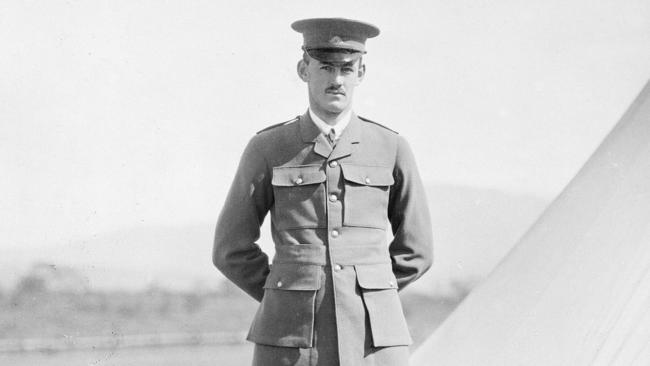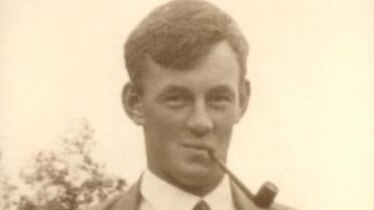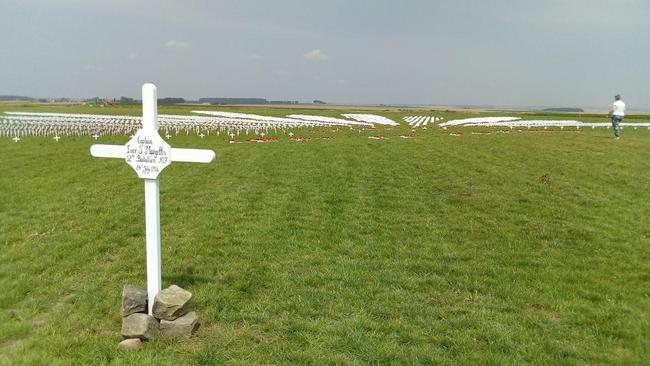100 Days of Heroes: ‘I cried like a kid’ when he died
‘EAT, drink, sing, and be merry, for tomorrow we die.’ That was the theme of the farewell party thrown for Launceston-born Ivor ‘Margo’ Margetts before he sailed for Egypt as a junior officer of the 12th Battalion aboard the SS Geelong.

Tasmania
Don't miss out on the headlines from Tasmania. Followed categories will be added to My News.
‘EAT, drink, sing, and be merry, for tomorrow we die.’
That was the theme of the farewell party thrown for Launceston-born Ivor ‘Margo’ Margetts before he sailed for Egypt as a junior officer of the 12th Battalion aboard the SS Geelong.
It was a morbid but fitting theme for a man known for his ability to “turn everything into a joke” — as a Hutchins School colleague said in a speech at the event.
One year and nine months later, Margetts would be killed on the frontline as captain of the 12th Battalion, leading an effort to capture the German-held village of Pozieres, France.
His well-documented actions during his deployment would see him mentioned in dispatches by British General Sir Douglas Haig.
Born in Launceston in 1891, he was the third son of auctioneer and storekeeper Stephen Margetts and Charlotte Margetts.

The family moved to Sydney and then to Wynyard in Tasmania’s North-West, but Margetts returned to Launceston for most of his formative education at Launceston High School.
His first job was as teacher at the Hutchins School in Hobart where he became a popular member of staff.
Margetts was involved in the militia for several years before the outbreak of war.
He was made junior officer of the 12th Battalion and was among the first Tasmanian troops.
The 12th Battalion finally put its training into practice at Gallipoli on April 25, 1915 and Margetts was in the second wave of boats towed to shore.
During the first few days, the 12th Battalion had suffered heavy losses of both officers and ordinary ranks. On July 29, 1915, Margetts was promoted to the rank of captain.
The 12th Battalion was in action for the first time on French soil on June 7, 1916.
On July 20 the 12th Battalion made its way to the frontline where it received orders to capture the village of Pozieres, which held a commanding position on a ridge.

“Captain Margetts was killed by shrapnel … at about 10 o’clock, in our second line trenches at Pozieres,” Private G.A. McKenzie, a stretcher bearer, recalled.
“I examined his body and helped to bury him on Monday morning in a shell hole near where he fell.”
McKenzie’s statement included a heartfelt tribute.
“He was the best man going. The men loved him. I cried like a kid when I found he was dead.
“I think he went because he was too good for the beastliness of war.”
All trace of Captain Margetts’s grave was lost in the Spring Offensive of 1918.
Captain Ivor Stephen Margetts is remembered at tree 430 on the Soldiers’ Memorial Avenue, as well as on the Hobart Town Hall, the Hutchins School, the Tasmanian Football League and University of Tasmania honour boards.


